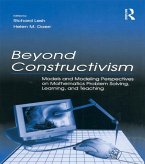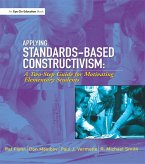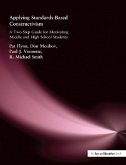First Published in 1995. In the past decade or two, the most important theoretical perspective to emerge in mathematics education has been that of constructivism. This burst onto the international scene at the controversial Eleventh International Conference on the Psychology of Mathematics Education in Montreal in the summer of 1987. No one there will forget von Glasersfeld's authoritative plenary presentation on radical constructivism, and his replies to critics. Ironically, the conference, at which attacks on radical constructivism were perhaps intended to expose fatally its weaknesses, served as a platform from which the theory was launched to widespread international acceptance and approbation. Radical constructivism is a theory of knowing that provides a pragmatic approach to questions about reality, truth, language and human understanding. It breaks with the philosophical tradition and proposes a conception of knowledge that focuses on experiential fit rather than metaphysical truth. It claims to be a useful approach, not the revelation of a timeless world. The ten chapters of this book present different facets in an elegantly written and thoroughly argued account of this epistemological position, providing a profound analysis of its central concepts.
Dieser Download kann aus rechtlichen Gründen nur mit Rechnungsadresse in A, B, BG, CY, CZ, D, DK, EW, E, FIN, F, GR, HR, H, IRL, I, LT, L, LR, M, NL, PL, P, R, S, SLO, SK ausgeliefert werden.









